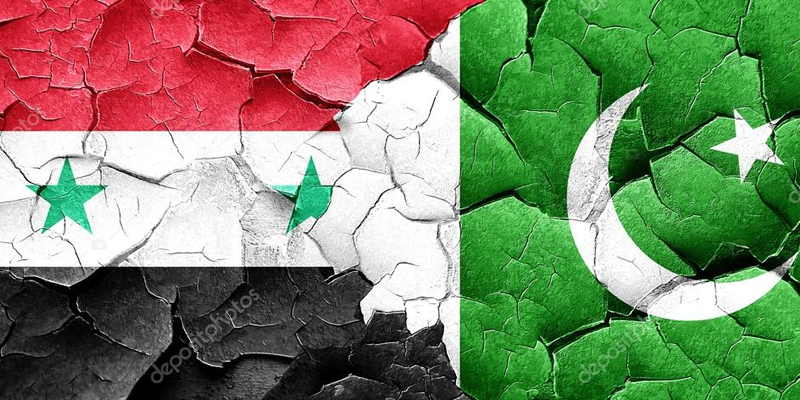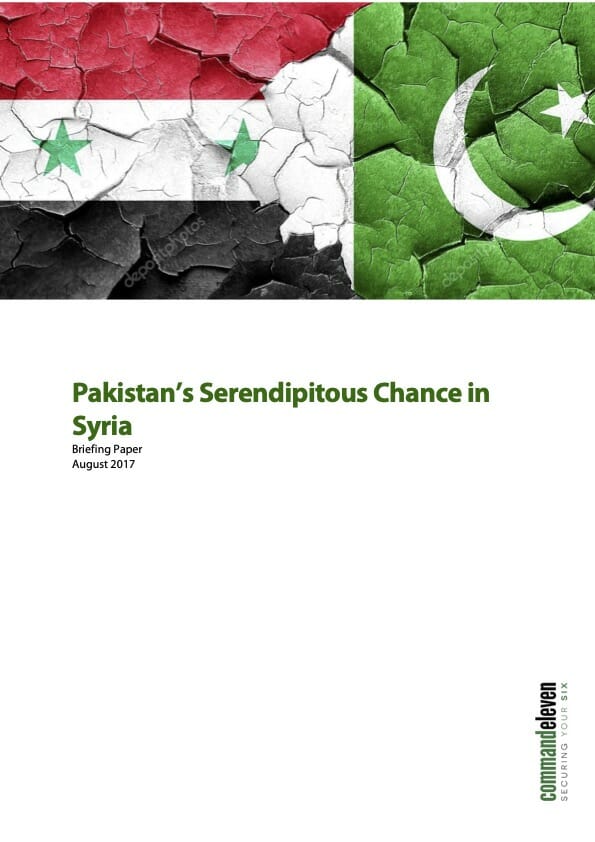Executive Summary
Pakistan has a serendipitous chance to greatly expand its growing Eurasian influence through skillfully taking advantage of the Syrian fallout from India’s newfound military-strategic partnership with Israel.
One of President Assad’s closest and most trusted advisors, Mrs. Bouthaina Shabaan, spoke out earlier this week in an interview with Hindustan Times against Indian Prime Minister Modi’s visit to “Israel” early last month, saying that Syria is now hesitant about allowing India to rebuild the devastated country because of the huge disappointment that its people have in New Delhi as a result. Her remarks were very important and therefore deserve to be quoted in full so that readers can truly understand all of what she meant, including the deeper nuances hidden in her words:
“Allow me to say that the Syrian people are very disappointed with the visit of Prime Minister Modi to Israel, because Israel is an occupying and a colonial force which has deprived Palestinians of their indigenous rights. We never expected India will move from its righteous and moral stand and pay that huge courtesy to Israel. I can say that while we call for a role for China and a role for Russia, we are very hesitant to call for a role for India (in rebuilding Syria). Regardless of the economic and military relations, because we know there are relations between India and Israel, the visit of Prime Minister Modi to Israel was really shocking.”
The journalist who interviewed her also reported that “it wasn’t India’s working relationship with Israel but the prime ministerial visit and the optics it entailed that had baffled Syria, she added”, which makes it seem like the global pomp and circumstance deliberately promoted by the government-influenced Mainstream Media in India was what put Syria in a defensive position whereby it, as a dignified defender of Palestine, had no choice but to respond with the choice words that Mrs. Shabaan used. However, there might be a little bit more behind Syria’s response than it might initially seem.
INTRIGUING INFLUENCES
It’s not to say that Syria responded as it did entirely because of the below speculative influences that three of its key partners could have played, but just to raise awareness about why they certainly can’t be ruled out given each player’s preexisting and various levels of disagreements/friction with India. To be clear, Syria is a sovereign state and correspondingly issued its statement through Mrs. Shabaan in accordance with the country’s grand strategic interests, but the below arguments attempt to make the case that this overlapped with the interests of its main international partners as well:
Iran
Syria is Iran’s top Mideast ally, and the relationship between the Islamic Republic and India has become tumultuous ever since Modi’s trip to “Israel”, with the Ayatollah even invoking the cause of Kashmir for the first time in 7 years and his government deciding to play hardball with India over the Farzad B offshore gas field as part of Iran’s asymmetrical response to this visit. It wouldn’t be unreasonable that Iran raised the issue with its Syrian partner afterwards, understanding that Damascus has a lot more pressing matters to be concerned about in handling its War on Terror than keeping tabs on India and might not have paid as much attention to the trip as it otherwise would have. In this case, Iran might have discretely brought up Modi’s summit with the intent that Syria would rightly respond as it did, knowing that this would undeniably be seen as one of the Multipolar World’s strongest signals yet about its supreme disapproval of India’s pro-Western pivot.
China
China, too, has a bone to pick with India, though not because of its alliance with Israel, which actually isn’t anything new in and of itself considering the billions of dollars of arms that New Delhi has purchased from it over the years. Rather, Beijing is caught up in the “Donglang Drama” with New Delhi after the latter decided to invade China’s territory while Modi was visiting Trump in mid-June. Seeing as how this standoff has the very real risk of breaking BRICS, sowing discord within the SCO, and turning India into the US’ New Cold War proxy against China, it makes sense why Beijing would be interested in taking proactive measures to mitigate New Delhi’s influence elsewhere in places such as Syria, where the People’s Republic is committing billions of dollars in rebuilding the country so that it could function as a pivotal node in the New Silk Roads. Given the relatively more powerful clout that China wields in Syria compared to India, it probably wouldn’t have been hard for Beijing to convince Damascus to “send a message” to New Delhi like the one that Mrs. Shabaan did earlier this week.
Russia
Lastly, Russia has no serious problems with India, though it’s well aware of the game-changing military-strategic partnership that New Delhi struck up with Washington through LEMOA and its subsequent designation as the US’ official “Major Defense Partner.” Moreover, India is jealously upset that Russia has returned to South Asia as a neutral balancing actor uninterested in taking sides in the country’s dispute with Pakistan, seeking instead to enter into a fast-moving and comprehensive rapprochement with Islamabad so as to better Moscow’s geopolitical balancing potential in 21st-century Eurasia. That being said, Russia harbors no ill will towards India, despite this open-minded respectfulness of New Delhi’s sovereign geopolitical choices not being reciprocated towards Moscow, so it wouldn’t have lobbied for Syria to threaten the de-facto downscaling of relations with India, but at the same time, given Damascus’ own self-respected and dignified interests, as well as those of its Iranian and Chinese partners, Russia also probably wouldn’t have objected to this or intervened in support of India either.



